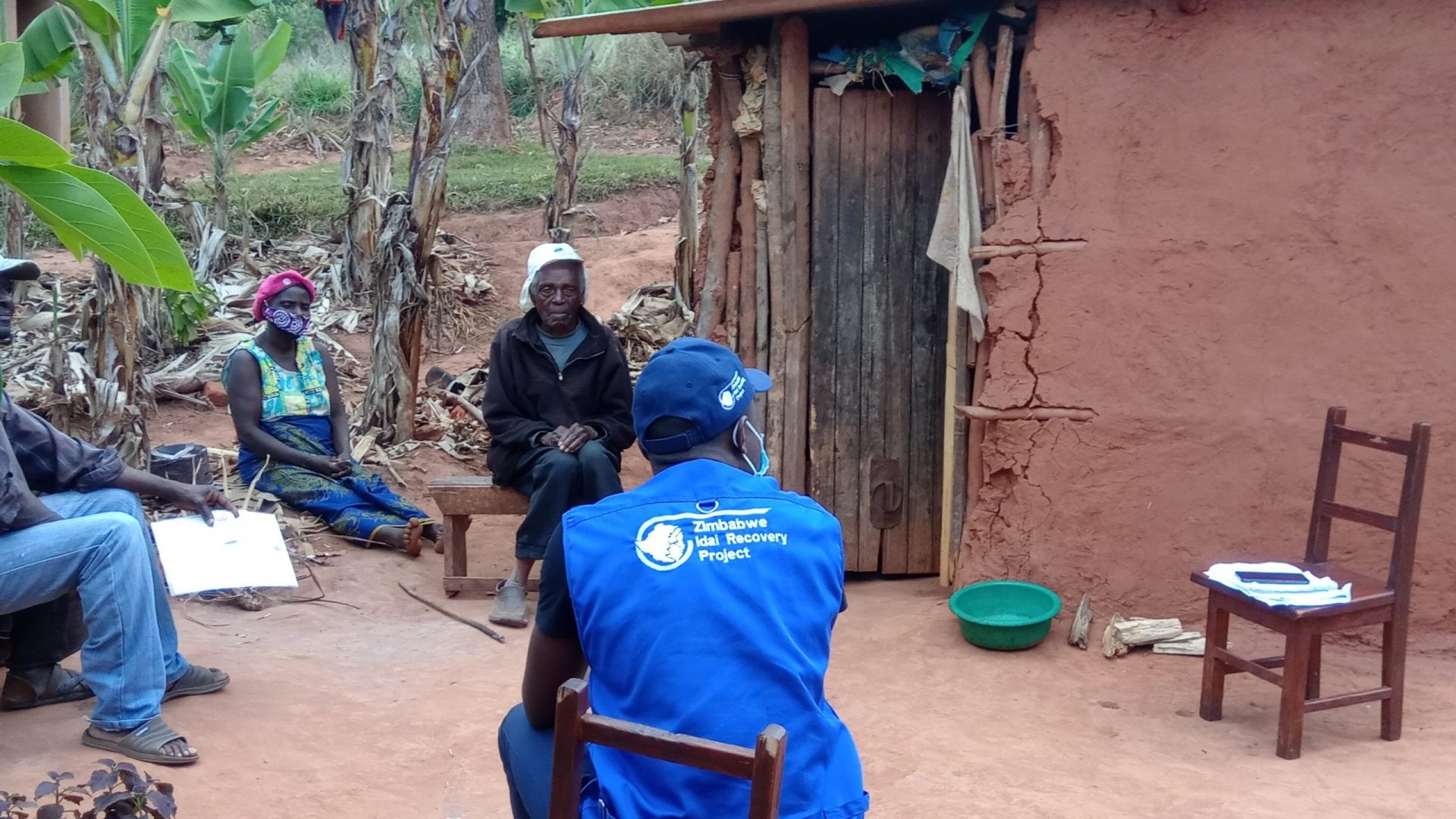ZIRP through the lens of an IOM enumerator
IOM conducted DTM assessments in Manicaland province from 24 February to 7 March 2021, targeting villages with Internally Displaced Persons (IDP) presence and a sample of IDP households to better understand the multisectoral needs and intentions of the affected people in Buhera, Chimanimani and Chipinge districts. The most urgent needs at the village level are food, shelter and safe drinking water, as highlighted by 355 of the 434 villages assessed. Household surveys reached 1,227 households with a total of 6,953 IDP individuals. Farlen Mangozi, one of the enumerators in Chipinge, narrates his experience working in disaster-struck areas, providing a look through his lens.
Q. Tell us about your typical workday
We meet up at around 7.30 am at the District Development Coordinator (DDC) office in the boardroom, and we prepare for the day. We also provide feedback from the previous day. We are then allocated places to visit and vehicles for the day to meet our target groups, mainly the local leadership mobilised by the DDC’s office.
When we get to the field, our entry point is usually through the councillor of the ward we are visiting, where we meet up with at least five (5) people due to COVID-19 restrictions. Before the pandemic, we met with at least 8 – 10 people depending on the level of the survey because we would do baseline surveys (ward) and village surveys.
Q. Give an account of the state of places you have visited
Due to the terrain in Chipinge, a lot of buildings were affected, some partially damaged and most lives affected. However, l am happy to say communities are not lying idle but are trying to get back on their feet regardless of the fact that there is still a great need for assistance to get back to their comfortable way of living. Most families have managed to build temporary shelters.
Q. What sort of information do you collect?
The number of households and status of the households affected by cyclone Idai, and information on the Internally Displaced People (IDPs) and the communities as well. Amongst the information, we collect the number of homes destroyed, current location of IDPs, the status of living, number of people affected (population), immediate community needs, issues on gender-based violence, child protection, information on the vulnerable groups and their needs (education) and Covid-19 awareness.
Q. What accounts/stories stand out for you?
In ward 9 of Chipinge district, the most affected community in the district, members of the community took it upon themselves to help and assist the affected members such as the elderly, orphans and other vulnerable groups in making temporary shelters and with food aid wherever possible. This stood out for me because regardless of the effects of the cyclone on everyone, the community united in helping each other without considering each other’s backgrounds.
Q. What do you love most about your work?
Enumeration has greatly influenced my social interactions with different communities. I find pleasure in getting to know people’s cultures and beliefs and knowing how they helped them overcome the disaster that affected them. l like my job because l am bringing about long-lasting change in my society because this is about data collection and interacting with community members. Furthermore, l like the fact that when we interact with communities, we give the people hope that the government and other partners are working tirelessly to make the situation better.
Q. What challenges did you face in your work and how do you resolve them or overcome them?
We have faced several challenges and amongst these are communication barriers. You will realise that some people we work with do not understand our questionnaires and, in some instances, do not understand the language we speak. We discuss questions that we find difficult to translate during our training and our briefing sessions to overcome this.
Q. How important has the rest of your team been in the carrying out of your work
The team has greatly assisted me in making my job easier to do, especially during our debriefing sessions. In our meetings, we discuss the challenges we face and make work easier. The high morale of the team also pushes me to do my job better, and above all, l look forward to each new day and its challenges. Management has also played a pivotal role in addressing and assisting us whenever we are facing challenges. Continuous reshuffling and grouping of members have ensured that we all work with different people and makes work easier as we now understand each other’s strengths and weaknesses.

